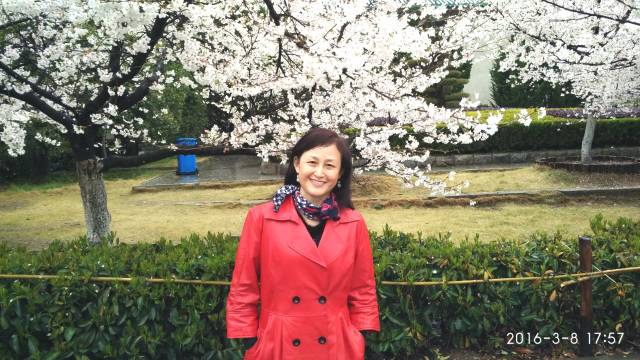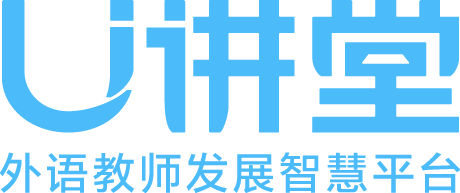2017“外研社杯”全国英语写作大赛圆满落下帷幕!本周起,小U将陆续送上U粉儿们最想看的写作决赛真题和优秀作文,还力邀名师大咖进行精彩点评噢!

今天先为大家送上议论文赛题和冠军佳作!
议论文赛题
Write an essay in response to the passage below. You should discuss the extent to which you agree or disagree with the passage and explain your reasons for the position you take. In developing and supporting your position, you should consider ways in which the author’s opinion might or might not hold true and explain how these considerations shape your position. You should write about 800 words.
Have you realized that living simply can make life less stressful and more fulfilling? By getting rid of all but the essentials, choosing to eliminate clutter and chaos, and spending time only on what is important to us, we have more freedom to live and improve.
Human beings go astray when they move away from simple living. We are not aware that we have been trapped in the complexity and excess of the modern world. Think about this. Are we as happy as we thought we'd be when we finally possess the many things we wanted? Are we more productive when we are surrounded by numerous inventions and luxuries? Do we have more time for our loved ones when we are chasing more possessions? I doubt it entirely.
Yes, I am embracing a minimalist lifestyle, a voluntary "poverty" if you like to call it. Get rid of the excess of life and acquire self-fulfillment and inner joy, before it is too late.
选手破题思路

梁心璐
中山大学
2017“外研社杯”全国英语写作大赛冠军
(指导老师:齐曦老师)
看到题目中出现的关键词“simple life”时,我马上想到了梭罗的《瓦尔登湖》,出于对自然文学的热爱,我将主题定为呼吁读者回归生活本真。而后又想到其他和自然有不解之缘的作家,包括我最喜欢的Annie Dillard,就这样我确定了这篇文章中最主要的两个论据。
开篇我先用白描的手法,特意使用一些强调“complicated”的词语,把我们一般认为的“fulfilling”的一天走了一遍。然后第二段抛出问题,质疑这种生活的价值。接下来我并没有马上提出自己的观点,而是依次回应了题目第二段中的三个问题,即我们在哪些方面“go astray”,再用比较生动的语言反面论证复杂生活的负面影响。在我认为铺陈到位后,便提出了返朴归真的做法,详细描述了两位作家的例子,并注意回扣题目中的关键词。因为这两个例子是同质化的,所以我考虑到了反对的声音,部分认同生活需要必需品,再补充两个现代的例子,从更贴切日常生活的角度给出了周末放松、读书充电的建议。结尾则是我一开始就想好的,与开头设想的情景形成对比,也就是在纷繁闹市中找到自己的“瓦尔登湖”。
这篇文章字数较多,是因为写的时候不够简练,最后没有检查和修改的时间。此外,文章有些论证不够深入,这些问题是我以后需要努力解决的。
选手作品展示
为真实展示选手赛场上的写作风貌,文章为从iTEST 大学外语测试与训练系统中摘出的原生作品,仅供学习分享使用。
To Find Your Own Walden
Imagine you rub your eyes along with the droning of your iPhone X at dawn, primp yourself with Chanel No.5 in front of the expensive French mirror, drive your BMW to a thriving startup, work all day long to compromise on a trivial case, spend your night with unfamiliar colleagues and customers in long draughts of whiskey, reach home late after midnight in waggling high heels, and find your husband and children fall asleep.
You seem to have a fulfilling day. But when you muse on an ordinary day like this in your King-size bed, are you really happy with this hustling, bustling life?
Don't hasten to give me your answer, but please have a look at the people around you. Brought up in a vigorous era with sophisticated technology and explosive information, we are inclined to fall in the pit of "getting ourselves busy and complicated". Office ladies just won't slow down their pace, either when they are trotting to work in the fashionable 8cm high heels or when they're binging on luxurious Victoria's Secrets online. And it seems a sin to take a rest at brunch time or read an essay of Russell during bedtime hours, because we can't be left behind the hottest topics. The last minute we are still pursuing the news of the actor Lu Han's love affairs, while in the next second the Sina Weibo is feeding us with newly-baked gossips about the kindergartens in Beijing. Everyone is browsing the excessive information and daily news, and attempts to air his or her opinion about trivial stuff in Wechat moments, which will be immediately swallowed by the wave of insane netizens.
Frankly speaking, this fast-speeding, booming society has provided us with both a promise and a predicament. The promise is that we have more chances to pursue the things we really want, such as luxuries and better jobs, and the sense of achievement and vanity is really hard to resist. Meanwhile, the predicament is that we sacrifice a lot, seen and unseen, in chasing more possessions. When we choose to spend more time working and fighting for dreams, our friends and family actually pale in significance. Without enough time and accompany, our love is easy to fade. With those scientific technology and unnecessary information surrounding us, we may miss the really important news and handy tasks, such as when to have a thorough health check of your body again, and when to pick your son home. Worst of it all, our minds may deteriorate by busily repeating the same work every day and immersing ourselves into superficial ideas, not to mention that we may get used to this hustling life-pace without regular reflections.
So how can we take a pause, and change this fast-paced and complicated lifestyle? Henry Thoreau has already provided us with a great choice centuries ago--"I went to the woods because I wished to live deliberately, to front only the essential facts of life, and see if I could not learn what it had to teach, and not, when I came to die, discover that I had not lived." This celebrity gave away his busy city life, went back to a simple lifestyle in Walden Lake, or even the primitive one, because he nearly survived on the most basic objects, and pondered hard for the meaning of life. He lived with nature in forest, recorded the life of animals and plants, and wrote the famous essays about Walden. A century later, an American writer Annie Dillard also spent a year living beside a national reserve, which is far away from the modern hubbubs, and finished her reflection about nature and life in her book Pilgrim at Tinker Creek. This book is so full of words of wits that without close touch with nature and far distance from technology, it can't be done. Both of them adopt a minimalist lifestyle. They embrace "poverty" and simplicity at their own wills, and achieve the real fulfillment and inner peace. At the same time, they have more freedom to improve themselves, both mentally and physically.
Those who root for a colorful and complex life have a point, because we do have to live on the essentials in daily life and the two people mentioned above are not our contemporaries. But this don't give us reason to adapt ourselves to the over-complicated, busy life. Instead, it gives us a reason to turn around, and see our lives in a different light, say, simplicity. In Don Murray's words, "Creativity is not the product of freedom; it is the product of the conflict between freedom and discipline." We can strike a balance between the essentials and simple lifestyle.
Take Shu Guozhi for example. He is a famous Taiwanese writer, photographer and chef, who is famous for his words of wisdom on simple lifestyle and his positive attitude towards life, especially food. He encourages modern people to have a rest during weekends, feast their stomachs on lovely dim-sums, and feast their eyes on art galleries and literature classics. Influenced by his plain but powerful words, many Taiwanese cultural celebrities turn to a simpler but more reflective lifestyle. Another example is that since Denmark has ranked first on the list of "the happiest country in the world" and also "the country of the highest literacy in the world" for many years, it can be safely drawn that reading does give a sense of true happiness to people, both ancient and modern.
And this can be also applied to our lives. Now imagine again you wake up in the morning of a Saturday, will you go on to work for extra salary or browse the Wechat, or will you delve for the "Walden" you have brought for years, and find your own "Walden" in a simple but peaceful way?
Maybe it's better that we bear what Kant says in mind, "Human beings should always be treated as ends but never the means to an end." Don't get busy for busy's sake, get rid of the excesses, and find the true inner happiness as a human being.
名师点评

邓鹂鸣老师
武汉大学珞珈特聘教授,博士生导师,外国语言研究所所长,香港城市大学博士,中国英语写作教学与研究专业委员会副会长,中国学术英语教学与研究协会常务理事,国内外多家学术期刊评审;主要研究方向为语篇学、二语写作教学、学术写作、专门用途英语;主持国家社科基金项目2项及教育部人文社科项目等多项;发表SSCI、CSSCI等研究论文60余篇。
此篇参赛习作围绕主要论点“Simple living can bring people true inner fulfilment, happiness, and peace”展开论述,全文总体构架清晰,由三大部分组成,即引言、主体及结论。
引言部分含括第一、第二自然段,作者刻意通过一番假设,栩栩如生地为读者展现了一幅现代人忙忙碌碌的典型画面,就此顺其自然地导出了全文拟论证的主题句(thesis statement):Hustling and bustling modern life can not make us really fulfilled and happy, 引言引人入胜,富有新意。
中间主体部分由第三至第七自然段构成,此部分为全文论证的重心,作者首先阐述了现代社会人们忙忙碌碌的普遍现象,接着进一步讨论当今飞速发展的忙碌社会所催生的一系列社会诟病,论证过程恰到好处地运用了例证法(exemplification)说服读者,先后以四个典型的例子来举证,即Henry Thoreau、Annie Dillard、Shu Guozhi及Demark,以此加大论证力度,凸显全文中心论点;作者在阐述论证自己主要观点的同时在第六自然段适当将议论反方(the opponent)的观点纳入考虑,可谓抓住了议论文的核心特征,论证切合主题,合乎逻辑。
第八、九自然段为全文的结论部分,作者针对自己的观点再次巧妙设问:面对物欲横流的现代社会,人们是应该继续忙碌追求物质生活抑或回归自然、过上真正简朴宁静的“瓦尔登湖”生活?首尾照应,进一步强调全文议论主题,并提出了个人建议。
纵观全文,标题耳目一新富含寓意,体裁恰当,布局合理,观点分明,重心突出,论证富有条理,例证翔实,恰到好处,思路开阔,语言表述流畅,句式较为灵活,是一篇优秀的参赛议论文!
不足之处在于:第五自然段若能置于第八自然段之前则全文构架更为合理,这是因为作者在中间拓展部分分层次论证了自己主要观点,再就如何改变现代快节奏繁杂的生活方式启发读者,这样便自然衔接过渡到了本文的结论部分,并能很好地升华全文议论主题,凸显作者个人独特的见解;此外,鉴于议论文体裁的严谨特性,语言表述自始至终应该正式(formal style),而不应出现“won't/ it's”类口头交际的缩写形式,同时具体写作时需要留心常用句法及常用词的准确性,譬如,“With those scientific technology and unnecessary information…”应为 “With the scientific technology and unnecessary information…”。
